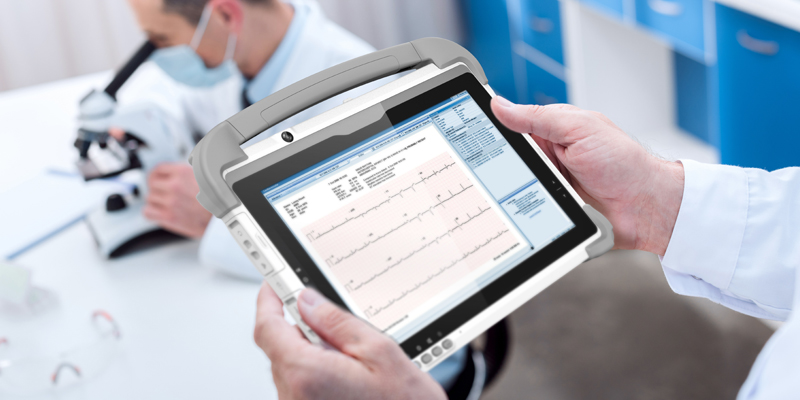
The virtual depiction of a real thing or system throughout its life cycle is known as a Digital Twin. Digital Twins enable learning, reasoning, and dynamically recalibrating for better decision-making by utilizing real-time data and other sources. In a nutshell, they are complicated computer models that are perfect replicas, or twins, of physical objects in a digitized version that can be edited, changed, and updated in real-time. These ‘objects’ could be a building, a tunnel, a bridge, or a person.
The manufacturing and construction industries have made substantial use of digital twin technology. However, it is now making a name for itself in the healthcare industry. Not only is digital twin technology being used to improve patient care, but it can also help clinicians choose the best therapy and reduce hospital costs through efficiency optimizations.
Big Data Collection
The use of digital twins in conjunction with AI, doctors are able to deliver accessible, inexpensive healthcare allowing patients to understand their current health state and how it may evolve in the future. The AI-powered program builds a Digital Twin when users complete a questionnaire about their lifestyle and family history, allowing them to gain insights into their present health and risk factors for future problems, as well as practical tips for keeping healthy based on the lifestyle and family history they entered.
In the case of medicines and prescriptions, a digital twin may be used to create an individual’s pharmacogenomic data to recommend the best treatment. To learn more about this, hop over to this website: https://www.rxoneshop.com. In the instance of surgery, digital twins might be used to not only anticipate results but also to find the best devices and techniques for the job.
Improve Patient Care
Rugged tablets with digital twin technology greatly improve patient care by allowing patients to acquire credible medical advice, schedule appointments with competent doctors, electronically transfer medications to pharmacies and see doctor’s notes and recordings of video appointments online. Digital twins have a lot of potential in terms of making it easier to customize medical treatments to people based on their unique genetic composition, anatomy, family history, past behavior, and other factors.
Reduce Hospital Costs
There are a number of key operational efficiency concerns hospital systems confront that could be addressed by using a digital twin. Lack of interdisciplinary collaboration, transcribing errors, equipment, and gadget outages, and long waiting lines are only a few of them. Digital Twins can virtualize a hospital to create a risk-free environment in which to test the effects of modifications on system performance. This is critical in healthcare because it allows for informed strategic decisions in a highly complicated and sensitive environment.
Although digital twins have a bright future in health care, their full influence will be determined by their capacity to transform data into credible clinical guidance at scale. Supporting this transformation will require better data, new relationships between patients and providers, and modern technology like medical tablets to revolutionize health care.
Medical tablets and medical cart computers easily integrate with digital twin technology allowing for mobility inpatient care. The digital twin replicas and forecasting can be created directly on the medical tablet and then discussed with patients at their bedside if in a hospital or in a treatment room, allowing the patient to hold the tablet and see up close the digital twin replicas and forecasts.
Medical tablets allow healthcare providers mobility and portability inpatient care as the tablets can be carried from room to room effortlessly. Medical tablets are lightweight yet durable for harsh conditions where technology needs to be dependable.

